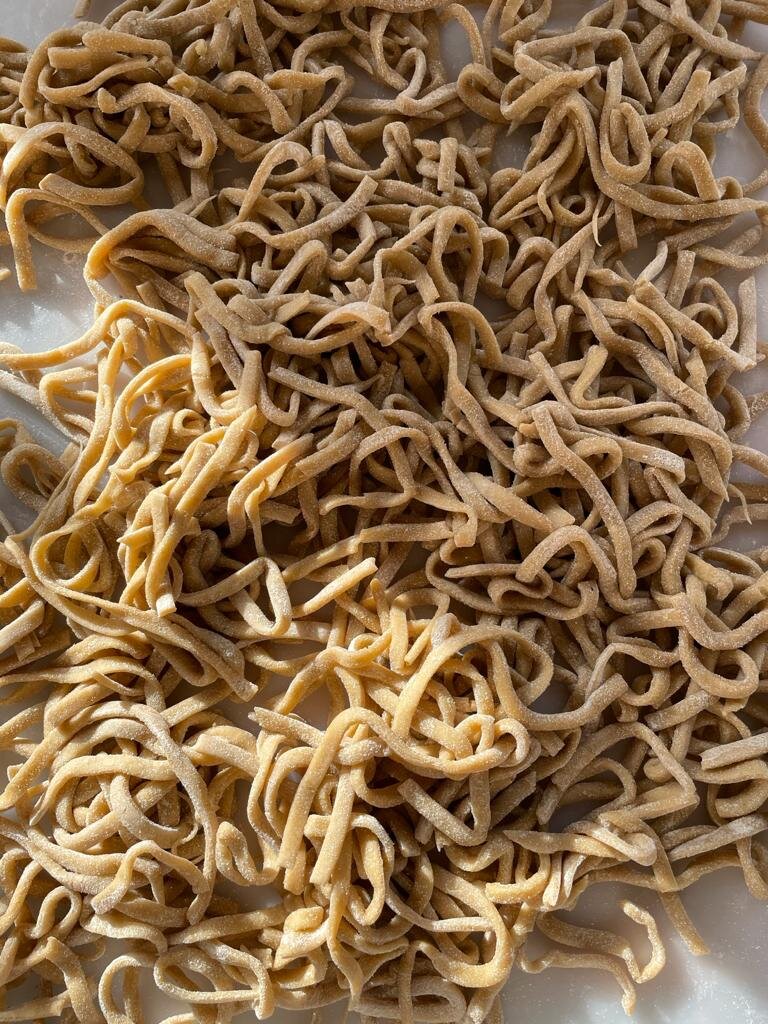Welcoming Emily and heritage wheat pasta to Torth y Tir
Hello to the recipients of this Torth y Tir newsletter, my name is Emily. I grew up on the Western Australian coast with a healthy mix of West Yorkshire in my cultural lineage, and I came to this beautiful part of the country to learn everything there is to know about peasant baking and growing heritage wheat. I’ll be taking on an apprentice-style role here at Torth y Tir - of course, I was drawn to Torth y Tir for the work, though I have quickly realised that it is the people we meet who make a life.
A few weeks ago we were visited at the bakery by Nitsan Moran, an Israeli-born pasta lover and walking library of heritage grains. Nitsan brought with him a revived awareness that the future of farming will need innovative ways of operating in order to keep up with the economic reconfigurations that our society has been undergoing for the last generation. I will touch more on this later, though for now, I’d like to explain Nitsan’s lasting impression on me that day in the bakery. Nitsan told us that he’s asked himself many times - why wheat. Even if romantic his answer was that wheat holds the stories of people. In its history ours is bound. To quote another wheat-muse of mine Lexi Smith, bread holds the potential to be a social, political, economic and ecological barometer:
‘A much longer history of ideological literature and actions has taught us that bread is representative of life and the livelihood that allows for the flourishing of that life. We must make bread to make bread. It serves as both sides of the literal and figurative coin: wealth and poverty, indulgence and austerity. Bread shows up in religion, government, and industry, all socially stabilising forces if accepted by a public, but destabilising if resisted. The provider of bread has historically been a traditionally powerful one, be it the Christian god, the ruling party, or the man of the house, land, or factory. Yet bread is often culturally associated with quite the opposite: women, the masses generally, and the peasantry in particular.’
Now that I have made the claim for bread as a lingua franca you should have a clear idea of the forces driving me to bake. It isn’t only the physical aspect of creating something wonderful that I love - it is working on a sustainable and local supply-chain of good food that makes me happy. We can move on to talking about some of the recent experiments with our wheat that have been going on at Torth y Tir. We have been making heritage grain pasta and working out the shapes that suit it best; the long and short, the rolled and stretched, shapes made by hand and rolled out by a machine, the twisted and the stuffed. At this moment there are very few pasta makers in the country using heritage wheat, and through trial and error I am arriving at a place where I would like to share some with you.
If you are interested in trialling some of our pasta alongside your bread subscription please let us know, or keep an eye out for more developments on this soon.
Thanks for reading.
Emily




